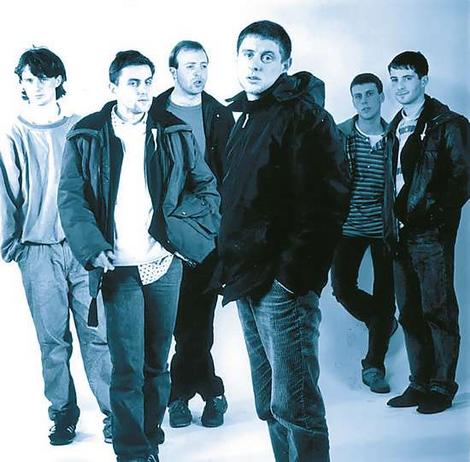Happy Monday, and welcome to another Carnival of Wealth. A roundup of personal finance blog posts from around the world. If you want to submit yours, do it here. Read the requirements. They’re not “guidelines”, they’re requirements. For the rest of you, enjoy.
Before we start, everyone’s asking why we disabled comments. We did it because 96% of the comments said nothing of consequence. It’s an experiment. We’ll try it for a while, see if it affects readership. But it won’t. If you want to say something, tweet us. (Or is it tweet “to” us? Is “tweet” a transitive verb?) Okay, now let’s get started:
The accomplished PKamp3 at DQYDJ.net (Don’t Quit Your Day Job) examines the difference between public and private sector wages. The dollar difference is small, the benefits difference larger. You can probably imagine which side holds the advantage.
A new entrant this week is Squeezer at PF Success, who recommends ways to save on gas. We included this because it isn’t the same old hackneyed garbage (shop around, combine errands, inflate your tires until they’re about to burst.) Squeezer also debunks the myth about Giant Retailer A’s gas differing in any way from Giant Retailer B’s.
Echo of Boomer & Echo offers data to prove that there’s no correlation between how big a fee a mutual fund manager takes, and what kind of result you can expect.
Amanda at My Dollar Plan compares refundable tax credits with non-refundable ones, in her trademark brief fashion.
Imagine if every time your doctor checked your blood pressure, she said “Now, the very act of putting the cuff around your arm is going to negatively impact your numbers by a few points.” And that’s how credit scoring works. Jim Wang at Bargaineering compares soft credit checks to hard ones; the latter include things like applying for a card or shopping for a mortgage. The solution? Live at home until your parents die! See, that was easy.
If everyone was as articulate about his subject of choice as Mich at Beating the Index is, well, we’d be a much smarter planet. Did you know natural gas prices are taking a pounding? Mich thinks they’re only going to get lower, and has the data to reinforce his belief. Also, beautiful charts. USA Today-worthy.
Kevin M of Out Of Your Rut guest posts at Christian PF this week, and asks if refinancing your mortgage is always a good idea. It’s amazing how many people don’t bother to look at closing costs or length of term remaining until they’ve already committed to a tantalizingly low new rate. Do the math before, not after (assuming you’re doing it at all.)
Credit card issuers, understandably, are going to be interested in your income before they give you a card. Liana at CardHub points out that that puts stay-at-home mothers in a difficult position. Unless they’ve somehow figured out how to monetize doing laundry and watching Oprah. (UPDATE: Apparently The Oprah Winfrey Show went off the air 10 months ago. How about that.) Get a secured card, or latch onto your money-earning spouse’s.
Someone knock on J.P.’s door and tell him the rookie hazing is about to commence. Another CoW newcomer, Novel Investor decries how American investment strategies have gotten unduly conservative since 2008. As J.P. puts it, “Nobody has gotten rich earning <1% on their money. Yet 8 times more money has been put into savings accounts than into stock and bond funds, since the market crash.” So why are people actively taking steps to avoid getting rich? 4-letter word, starts with “f”.
From our “Preach it, brother” files: John Kiernan at Wallet Blog puts the kibosh on that notion that getting a college degree necessarily helps you earn more money. The oft-cited statistics (“You’ll earn x% more than someone with only a high school diploma”) conveniently lump all college graduates into an amorphous group. Yes, someone with a chemical engineering degree will make more money than a high school graduate who works in golf equipment sales or drives a truck. But we’ll take either of those last two over someone who earns an English literature degree and pours lattes for a living.
Paul Vachon at The Frugal Toad discussed the Home Affordable Modification Program, yet another government construct created to distort the market and prolong the inevitable pain that comes with rewarding people for getting in over their heads “keep hardworking Americans in their homes.” One more time: every last one of these programs costs money. The money comes from somewhere. That somewhere is the pockets of taxpayers who were prudent and diligent enough to have earned the money in the first place. It’s then given to people who weren’t defrauded and weren’t stolen from. They simply bought too much house, and now want someone else to fix the problem. Because personal responsibility, to say nothing of playing the cards you’re dealt, is for suckers.
Teacher Man at My University Money and his long-time girlfriend don’t want to have kids. Of course he can’t come flat out and say that, because he’s afraid people will call him a monster. So he has to vacillate and say, “Well, maybe not now” and offer secondary reasons for not doing so. (It’s good for the environment, etc. It’d thus be best for the environment if humanity collectively decided to die out.) Or maybe that’s just the Canadian in him, not wanting to ruffle feathers. Anyhow, he offers the convincing economic reasons for leaving the task of reproduction up to other people. Bonus: helpful comments from people who tell him that a) having kids is a personal decision and b) it’s OK not to. And you wonder why we disabled comments on Control Your Cash.
Phil Taylor at PT Money lists a bunch of ways to save money when eating out. He left out our surefire method, which is “date somebody small.” Tiny dining partner = more leftovers and partially eaten entrées.
Phil didn’t know he was going to be part of a point/counterpoint dialogue when he submitted his article, but here we are. Matt at Rambling Fever believes that when you dine out you should dispense with caution and spend as much money as possible, or so it seems.
If you’re one of these frugal diners and tip only 15% of your measly bill, you’re no better than somebody who doesn’t leave a tip at all!
That’s obviously false, but Matt uses hyperbole to argue that spending money in restaurants (or more specifically, not being stingy when you do take the plunge and eat out) helps the economy circulate.
We’re assuming you want our take, which you’re now going to get anyway.
Bad service deserves a bad tip. Also, bad customers deserve bad service. Case in point, the group of 4 idiots we recently saw at a local sports bar who received their check after a couple of hours of drinking, then requested that the waitress go back and give them separate checks. This table couldn’t figure out, or be bothered to figure out, who owed what. Which tied the waitress up for several minutes, while a low-maintenance table of 2 (Hi!) sat there waiting so they could pay, get out, and free up their table for the next customers.
Simple rules for dining out, which we just created:
1. If you’re using a coupon, fine, whatever. But you can’t possibly be so cheap as to think that this excuses you from leaving a tip on what the full price of the meal would have been.
2. Appetizers, and particularly alcohol, have gigantic markups. (Yeah, no kidding.) That doesn’t mean that you should obsess over the restaurant’s cost of goods sold, but rather how the prices affect you. If you’d rather numb a few brain cells with a $6 beer than spend a couple of bucks on a soda with free refills, knock yourself out. If you’d rather do the opposite, the restaurant isn’t at fault for offering cheaper alternatives to alcohol.
3. If you’re just going to order a couple of entrées (“mains”, for our Commonwealth friends), because that’s all you want, don’t apologize for it. The restaurant’s welcome to set minima for how much you have to order. Besides, it’ll probably get you out of the restaurant faster anyway. If you’re a waitress, is it better to get a $6 tip for a half hour of work or a $10 tip for one hour of work?
That being said, be an adult. Don’t be the squeaky wheel who retards the process with irritating questions like “Do you use peanut oil?”, “Are these free-range chickens?”, “Can I get mine cooked in margarine instead of butter?” and “Can I get half chicken and half beef?”
When the hostess seats you, pause your conversation and read the menu. It’s not that hard to pick up where you left off. Figure out what you want as soon as possible so the waitress doesn’t have to make multiple visits and ask “Do you need more time?” And if you know you’re not going to order anything else once your entrée comes, that’s a great opportunity to ask the waitress for the check.
Seriously?
Yes, of course. Why prolong the inevitable? You can still take your time eating, but asking for the check (and having your payment ready to go when it comes) actually gives the waitress something to do when she comes around and asks if there’s anything else she can get you. She can process the check, take your money, and by the time you finish eating you don’t have to wait around for her. You can leave at your leisure, and the next party can be seated all the more quickly.
There. Now you know how to behave at restaurants. Glad we could help. See you next week.




